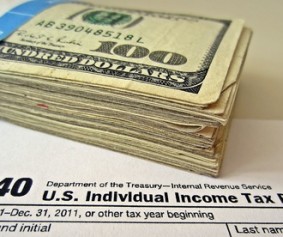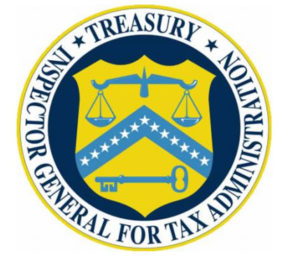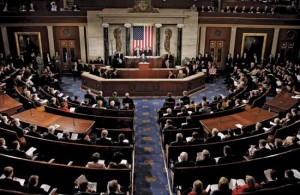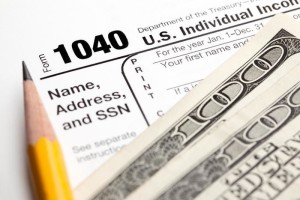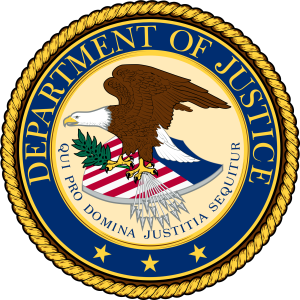TREASURY INSPECTOR GENERAL FOR TAX ADMINISTRATION
Monday, July 22nd, 2019 @ 2:51PM
International Travel Claims With Unallowable or Unsupported Expenses Were Certified for Payment by Approving Officials
June 10, 2019
One of CFEG’s core missions is to expose wasteful government spending and inform the public. On June 10, 2019 the Treasury Inspector General For Tax Administration (TIGTA) issued a report on international travel reimbursement claims made by IRS employees which were not allowable or constituted unsupported expenses which IRS officials approved for payment. https://www.treasury.gov/tigta/auditreports/2019reports/201910015fr.pdf
TIGTA found that the IRS spent nearly $5 million associated with almost 1,600 international travel claims during Fiscal Years 2016 and 2017. IRS employees travel internationally to secure records for tax cases, meet with foreign officials on tax matters, and participate in conferences. TIGTA found that when employees incur inappropriate travel expenditures and then obtain reimbursement for such expenditures it does not promote economic and efficient use of publicly funded resources and puts the IRS at risk of making improper payments. https://www.treasury.gov/tigta/auditreports/2019reports/201910015fr.pdf
TIGTA’s reviewed a statistically valid sample of 106 employee international travel claims, and an additional nine claims with a value of $10,000 or more and identified certain control weaknesses in the IRS travel programs. TIGTA found that IRS officials approved travel vouchers and certified employee reimbursement for unallowable or unsupported expenses. https://www.treasury.gov/tigta/auditreports/2019reports/201910015fr.pdf
TIGTA identified unallowable expenses for 20 (17 percent) of the 115 claims it examined. These claims included employee use of business class airfare upgrades without proper justification, expenses claimed in excess of allowable limits, and claims for certain miscellaneous expenses (e.g. dining charges to entertain a foreign official and traveler vaccinations). Based on the sample results, TIGTA estimated that the IRS reimbursed employees for almost $36,000 in unallowable expenses during Fiscal Years 2016 and 2017. https://www.treasury.gov/tigta/auditreports/2019reports/201910015fr.pdf
In one instance, TIGTA found that an IRS employee traveler requested the use of business class airfare to attend a foreign tax conference where the traveler would provide a keynote speaker presentation. The traveler also scheduled meetings with foreign tax officials. The traveler’s flight time was about 22 hours (not including layovers). Because the traveler elected to fly business class at the Government’s expense, the traveler was not eligible or authorized to take a rest period upon arrival at the traveler’s destination or upon return. The traveler attested in the request that no rest period would be taken upon arrival at the destination or completion of the trip. TIGTA determined that the traveler arrived in the foreign location at least one day before initiating any official business, resulting in a rest period. For the return flight, the traveler arrived back at their official duty station a day before needing to be at work and, therefore, had another rest period. As a result, business class travel for this trip was not justified based. The use of business class airfare resulted in an increase in the cost of the traveler’s airfare of $9,535. https://www.treasury.gov/tigta/auditreports/2019reports/201910015fr.pdf
Using the same sample, TIGTA identified that the approving officials certified claims for reimbursement without complete supporting documentation for 25 (22 percent) of the 115 international travel claims. While the IRS was subsequently able to locate adequate support for all but one travel claim, it did not have the documentation for approximately $34,000 in expenses at the time the claims were certified for reimbursement. https://www.treasury.gov/tigta/auditreports/2019reports/201910015fr.pdf
TIGTA further found that 20 (17 percent) of the 115 claims reviewed, representing nearly $910,000 in international travel, did not include a complete Form 1321, Authorization for Official Travel, with all required approval signatures. These forms are required to be completed prior to official travel to ensure that travelers have managerial authorization to perform international travel, funds are available for the travel, and required travel documents, such as passports, have been obtained. https://www.treasury.gov/tigta/auditreports/2019reports/201910015fr.pdf
TIGTA identified 10 instances, representing more than $2,000, in which a traveler claimed per diem in excess of allowable limits or claimed expenses for travel that did not occur. https://www.treasury.gov/tigta/auditreports/2019reports/201910015fr.pdf
TIGTA also found in 23 instances, the travel claim did not have support for claimed airfare, representing more than $32,000. According to TIGTA these travel claims did not include receipts indicating that travel had actually occurred and the final price of the airfare. Instead, other types of documentation, such as the travel itinerary or credit card statement, were provided. However, while the IRS was subsequently able to locate and provide airfare receipts associated with all except one of the 23 claimed airfares, approving officials did not have this information when they certified the travel claims for reimbursement. https://www.treasury.gov/tigta/auditreports/2019reports/201910015fr.pdf
When IRS employees do not follow rules for obtaining approval of allowable travel expenses and when IRS officials approve reimbursement for unallowable or unsupported expenses, it does not promote economic and efficient use of publicly funded resources and puts the IRS at risk of making improper payments of taxpayer money.
Posted by cfegov
Categories: IRS WASTEFUL SPENDING

